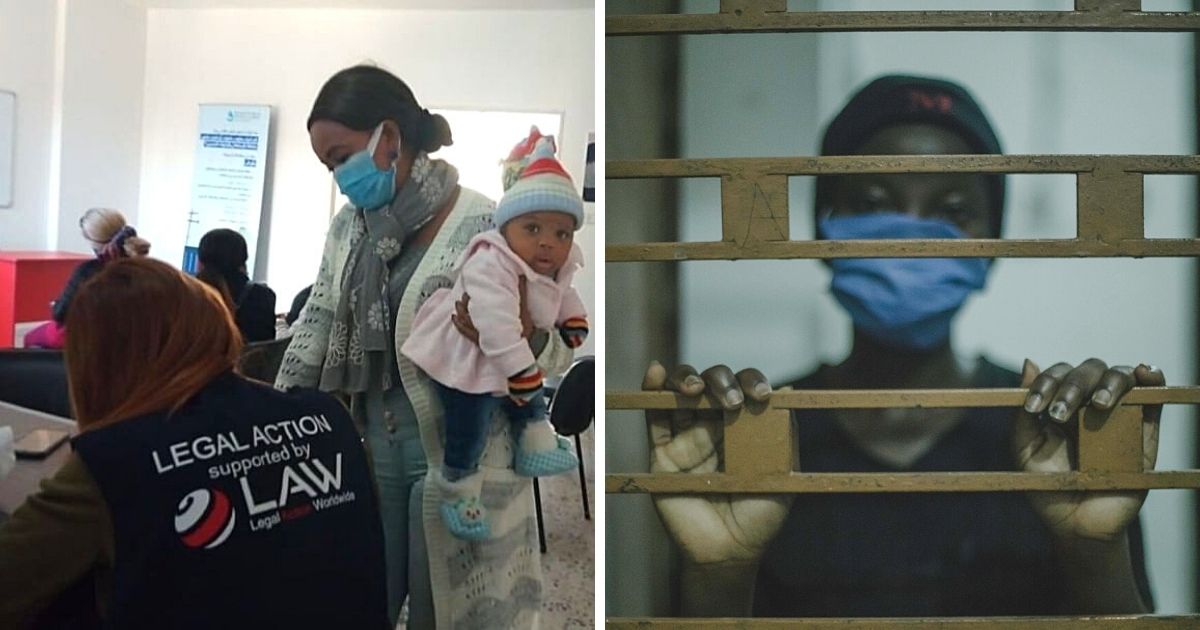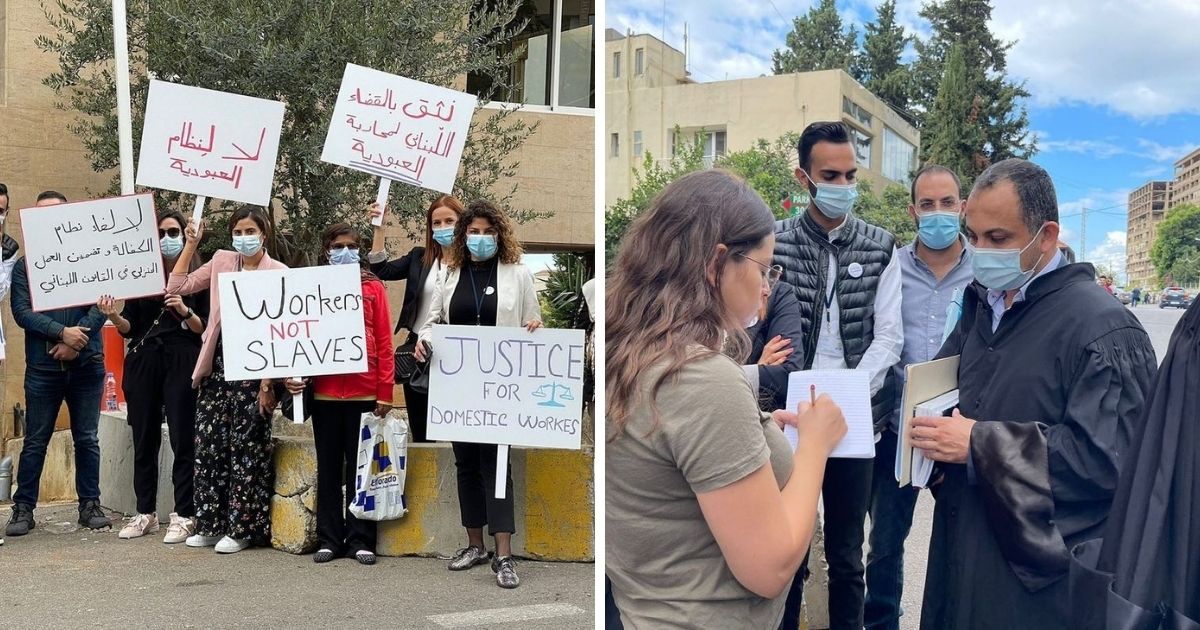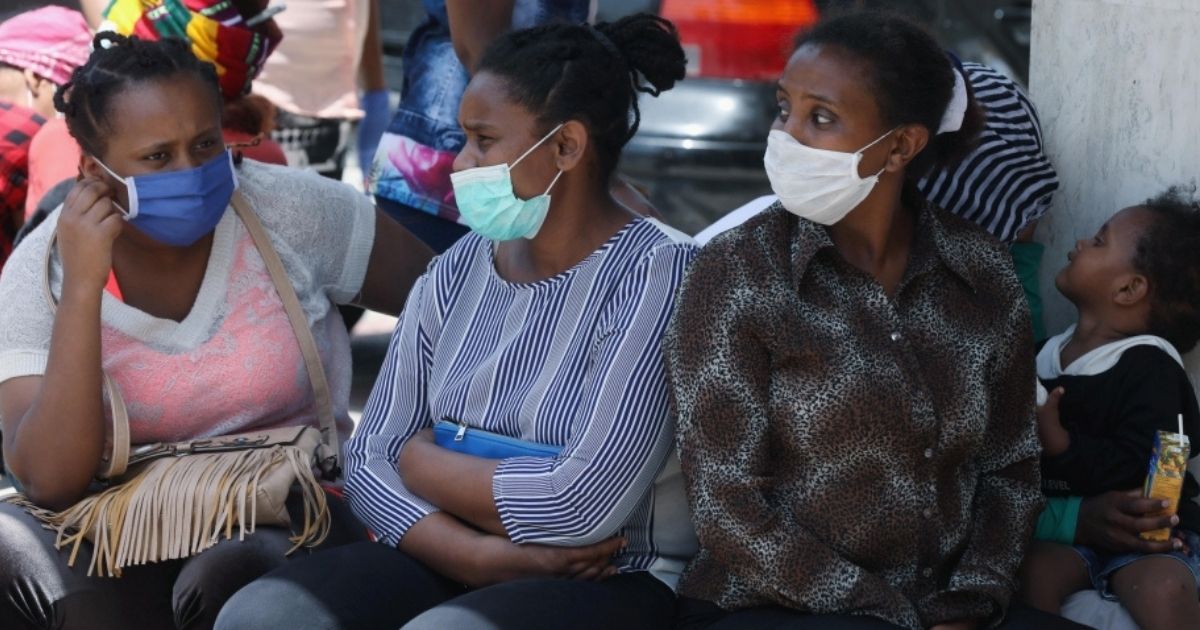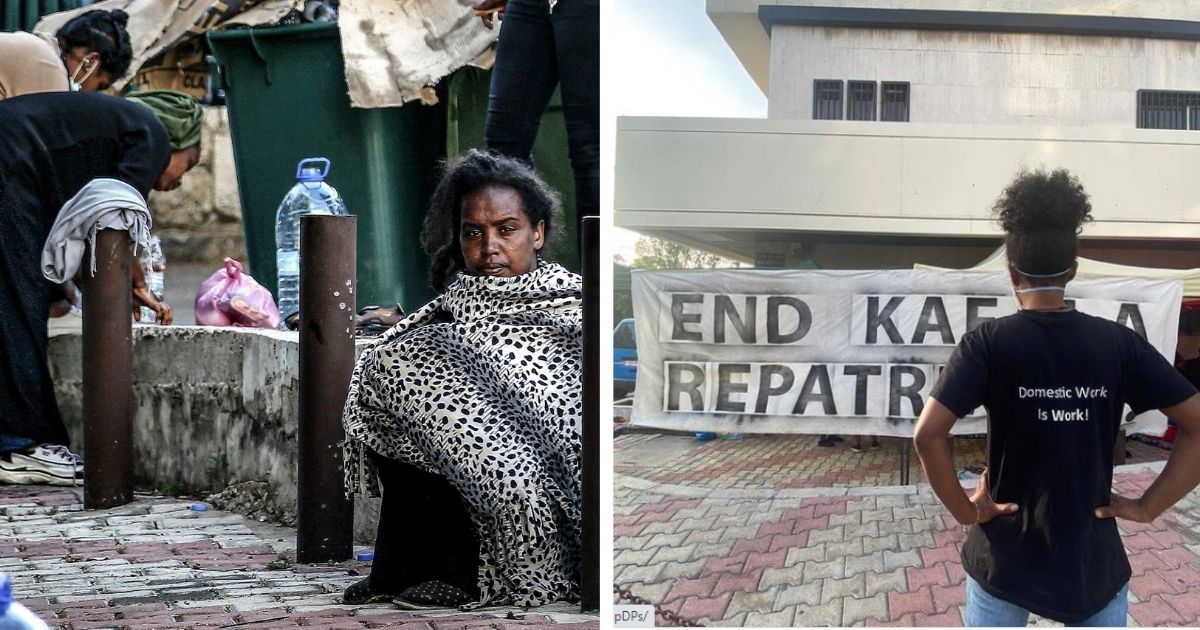The Nigerian foreign employee, whose controversial case bewildered many Lebanese and Africans alike, has refused to return to Nigeria, according to the Chairman of the Nigerians Diaspora Commission (NiDCOM).
The said employee, Busari Peace Ufuoma, was put up for sale on a Facebook marketplace for $1,000 in Lebanon two months ago. The post “selling” her was received with so much criticism and backlash from the general public in both Lebanon and Nigeria.
Even the Lebanese government stepped in and local authorities detained the man responsible for the dehumanizing post. However, according to him and his family, it was at Busari’s request that this post was published.
According to Nigerian news, NiDCOM chairman, who met with the Lebanese Ambassador to Nigeria, Houssam Diab, revealed that 31-year old Busari has turned down all attempts to rescue her back to Nigeria.
NiDCOM chairman Abike Dabiri-Erewa, who is also a veteran journalist, spoke personally with Busari and learned that she has even found a new job in Lebanon and would prefer to stay working here.
That’s despite pleas from Oyo State Government (her state) that had pledged to return her safely home.
“I spoke to her myself on the phone and I told her that if she gets into any trouble, there will be nobody to call,” Abike Dabiri-Erewa said. “But she said she does not want to come back, that she has found another job.”
He added, “Even the Secretary to the State Government (SSG) of Oyo State, where she is from, spoke to her. We just hope that Nigerians going to work in Lebanon will be properly treated and not treated as slaves.”
Many foreign workers come to Lebanon in search of better job opportunities, which are made possible by the Kafala system, a sponsorship program that binds the immigration status of migrant workers to their employers through a contract for a specific amount of years.
While it may be perceived as a good opportunity to make money to provide for their families, the reality is that many workers experience a lot of emotional stress and sometimes mistreatment at the hand of employers.
The Kafala System, in fact, puts them at the total mercy of their employers.
Currently, many migrant domestic workers are suffering from the loss of employment due to the lack of dollars in Lebanon. For instance, dozens of Ethiopians have recently been left homeless by their employers, until the state intervened and sheltered them temporarily in a hotel in Beirut.

















